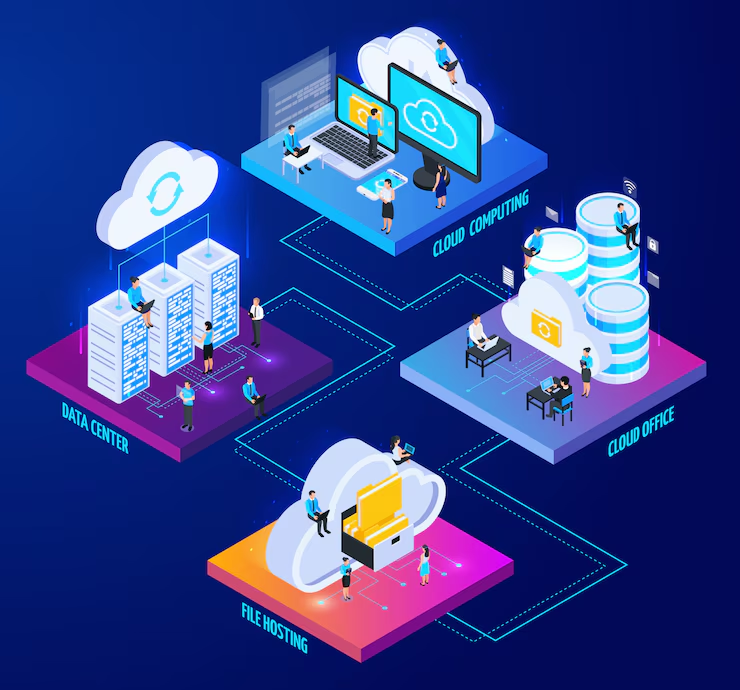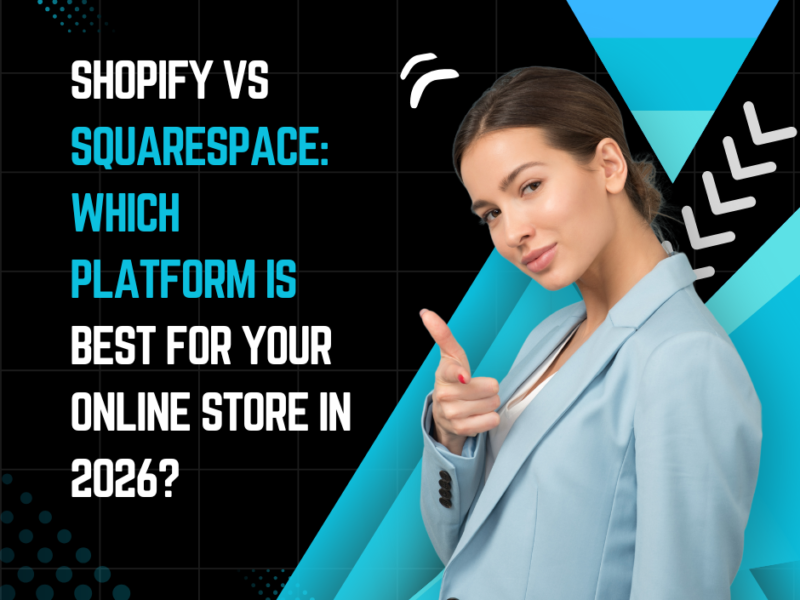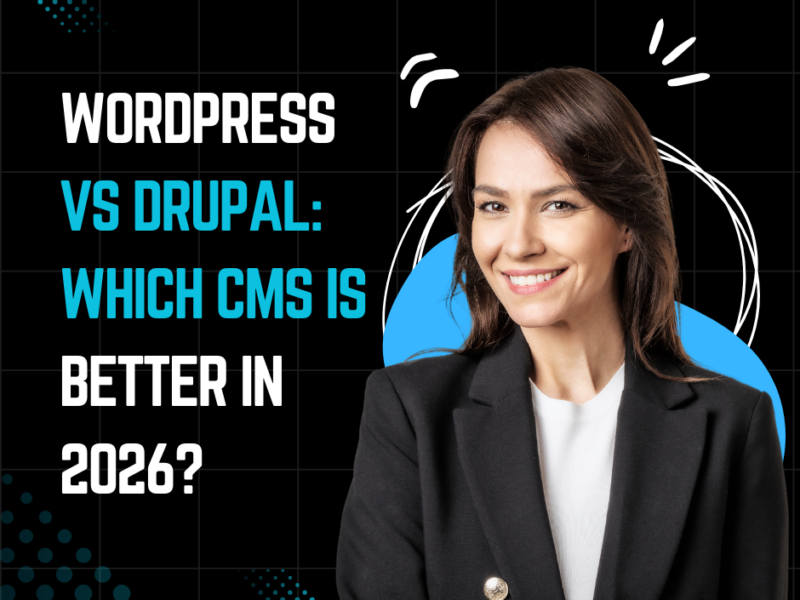History of Cloud Computing Services:
Cloud Computing Services emerged in the early 2000s as a paradigm shift in IT infrastructure delivery. It evolved from early concepts of utility computing and virtualization, gaining momentum with advancements in internet technology.
In the mid-2000s, Amazon Web Services (AWS) introduced Elastic Compute Cloud (EC2) and Simple Storage Service (S3), pioneering Infrastructure as a Service (IaaS). This marked the beginning of scalable, on-demand computing resources accessible online.
Google Cloud Platform (GCP) and Microsoft Azure launched in the late 2000s, expanding cloud offerings to include Platform as a Service (PaaS) and Software as a Service (SaaS). Businesses increasingly adopted cloud services for agility, cost-efficiency, and scalability.
Throughout the 2010s, cloud computing adoption surged as enterprises migrated workloads to the cloud. Benefits such as reduced IT overhead, improved collaboration and faster innovation drove widespread adoption across industries.
Today, cloud computing continues to evolve with advancements in AI, machine learning, serverless computing, and edge computing. Cloud providers expand global infrastructure to meet the growing demand for secure, reliable, and scalable computing solutions.
What is Cloud Computing Services:
Cloud computing services refer to a broad range of resources and applications delivered over the internet. These services enable users to access and utilize computing resources, such as servers, storage, databases, networking, software, and more, without needing to own or manage the physical infrastructure.

Also read: What is Cloud Computing and Types of Cloud Computing
Cloud Computing Services Platform:
Infrastructure as a Service (IaaS): Provides virtualized computing resources over the internet, such as virtual machines, storage, and networking. Users can deploy and manage their applications and software.
Platform as a Service (PaaS): Offers a platform that includes operating systems, databases, and development tools over the internet. Developers can build, test, and deploy applications without worrying about the underlying infrastructure.
Software as a Service (SaaS): Delivers software applications over the internet on a subscription basis. Users can access these applications through a web browser without needing to install or manage the software locally.
Also read: Cloud Computing Architecture
Cloud Computing Services:
1. Amazon Web Services (AWS)
Amazon Web Services (AWS) is a leading cloud computing platform offered by Amazon.com. It provides a wide range of services including computing power, storage solutions, databases, machine learning, and more.
AWS is known for its scalability, reliability, and global reach with data centers in multiple regions. It offers robust security features, extensive compliance certifications, and a flexible pay-as-you-go pricing model.
2. Microsoft Azure
Microsoft Azure is a comprehensive cloud computing service created by Microsoft. It offers a wide range of tools and services for building and managing applications and services through Microsoft-managed data centers.
Azure provides solutions for virtual computing, networking, databases, AI and machine learning, IoT, and more. It integrates well with Microsoft products, offering hybrid cloud capabilities and strong enterprise support.
3. Google Cloud Platform (GCP)
Google Cloud Platform (GCP) is a suite of cloud computing services provided by Google. It runs on the same infrastructure that Google uses internally for its end-user products.
GCP offers computing, storage, machine learning, and data analytics services. It is known for its strength in data analytics and AI/ML, with services like BigQuery and TensorFlow.
4. IBM Cloud
IBM Cloud is a suite of cloud computing services offered by IBM. It provides both platform-as-a-service (PaaS) and infrastructure-as-a-service (IaaS) solutions.
IBM Cloud offers services for computing, storage, databases, AI, blockchain, and more. It emphasizes hybrid cloud capabilities and enterprise-grade security and compliance
5. Oracle Cloud Infrastructure (OCI)
Oracle Cloud Infrastructure (OCI) is the cloud computing service offered by Oracle Corporation. It provides a suite of cloud services including computing, storage, networking, databases, and more.
OCI is designed for high-performance computing and enterprise-grade applications. It offers comprehensive security features, strong support for Oracle workloads, and hybrid cloud solutions.
Also read: Key Benefits of Cloud Computing
Also read: Key Challenges of Cloud Computing
Key components of a Cloud Computing Services Platform include:
Compute Services: Virtual machines, containers, serverless computing (functions as a service), and auto-scaling capabilities.
Storage Services: Object storage, block storage, and file storage solutions that are scalable and accessible via APIs.
Networking Services: Virtual networks, load balancing, content delivery networks (CDNs), and VPN connectivity for secure communication between resources.
Database Services: Managed database services (SQL and NoSQL), data warehousing, and data lakes for efficient data management and analytics.
Security and Compliance: Identity and access management (IAM), encryption, threat detection, and compliance certifications to ensure data protection and regulatory compliance.
AI and Machine Learning Services: Pre-built AI models, machine learning algorithms, and tools for data processing and predictive analytics.
Monitoring and Management Tools: Dashboards, logging, monitoring, and automation tools to manage and optimize cloud resources and applications.
FAQ:
What is Amazon EC2?
Amazon Elastic Compute Cloud (EC2) provides resizable compute capacity in the cloud, allowing users to quickly scale capacity up or down as needed.
Does AWS offer database services?
Yes, AWS provides various database options including Amazon RDS (Relational Database Service) and Amazon DynamoDB (NoSQL database service).
What is Azure Virtual Machines?
Azure VMs allow users to deploy virtual machines on Microsoft’s cloud infrastructure, providing flexibility in computing resources.
Can Azure be used for DevOps?
Yes, Azure DevOps provides tools for planning, developing, testing, and deploying applications
What is Google Kubernetes Engine (GKE)?
GKE is a managed Kubernetes service for deploying, managing, and scaling containerized applications.
Does GCP offer serverless computing options?
Yes, Google Cloud Functions and Cloud Run are serverless computing platforms that automatically scale based on traffic.
What is IBM Watson?
IBM Watson is an AI platform that provides a range of services for data analysis, natural language processing, and machine learning.
What is Oracle’s Autonomous Database?
Oracle Autonomous Database is a self-driving, self-securing, self-repairing database service
Conclusion:
Cloud computing service depends on your specific needs for scalability, security, compliance, and integration capabilities. AWS, Microsoft Azure, and Google Cloud Platform are among the top choices, each offering unique strengths tailored to different business requirements. Evaluating factors such as performance, security features, pricing models, and support will help you determine the best fit for your organization’s cloud infrastructure.








